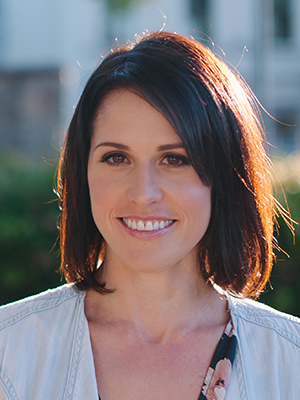Profile: Rachel Corbett
Radio presenter Rachel Corbett speaks out about the personal toll of dementia and the harrowing experience of her mother’s Alzheimer’s disease.
 Rachel Corbett, a writer and media presenter, struck a chord with viewers of The Project earlier this year, when she spoke frankly on the panel about her mother’s dementia. Rachel’s mother was diagnosed with Alzheimer’s disease in her late fifties and lived for 10 years with the condition.
Rachel Corbett, a writer and media presenter, struck a chord with viewers of The Project earlier this year, when she spoke frankly on the panel about her mother’s dementia. Rachel’s mother was diagnosed with Alzheimer’s disease in her late fifties and lived for 10 years with the condition.
In the early years, Rachel’s mother hid the diagnosis from her family. After Rachel found out, she realised why: there is still a lot of fear and ignorance about dementia. Her mother could “see people snickering…or making comments about her because she wasn’t behaving normally or she was doing things that she couldn’t control,” she says “That used to kill me to hear that.”
“It’s really hard for the person to fit into normal life and then on top of that, they feel self-conscious and embarrassed,” she says. “You want everybody to feel – especially when it’s not their fault – the way that they are is completely okay.” Rachel made an effort to take her mother on outings as often as possible “so she didn’t feel like she was stuck in a house and she didn’t feel like I was ashamed of her.”
As her mother’s condition deteriorated, at-home care was no longer possible, but the transition into residential care was difficult, Rachel says. Her mother had become sleepless and violent – not uncommon symptoms – and her stepfather was constantly being woken in the middle of the night. “She would be bashing him, screaming at him, she would be impossible to calm down, so he was basically calling the ambulance all the time because she just would never sleep.”
What Rachel found most saddening about her mother’s dementia is the insight she had into her own condition. “I think the worst thing about her situation was that she knew it was happening the whole way along.”
Rachel started speaking out about dementia in response to what she saw as public misconceptions about the disease. While acknowledging that each case is different, she doesn’t sugarcoat the fact that her mother’s Alzheimer’s was a difficult experience. “When you’re a family member about to go through something like that, you need to know what you’re about to face, because I was certainly blindsided by it.”
Confronting uncomfortable truths is important in raising public awareness about dementia, Rachel believes. “I think the only way that people are going…to be invested in it emotionally is if we start having these kind-of icky, uncomfortable conversations that aren’t very pretty,” she says. “It amazes me that so many people are affected by it, and will be affected by it, and yet we just don’t really talk about it.”


